Pnewz
If the screen of your mobile or tablet is spammed with hundreds of advertisements, pop-ups, page-redirects, and aggressive banners, a browser hijacker software like Pnewz might have been installed on your Android device. Such apps normally don’t represent a major risk (such as the infection with a Trojan Horse or Ransomware). However, they may cause a lot of web browsing disturbance and annoyance when you are using your smart device.

For instance, despite the efforts to close the advertisements that Pnewz displays, typically they don’t want to go away from the screen. Clicking the “X” not only doesn’t close the nagging pop-ups and links but also redirects you to to a number of unfamiliar sites.
The Pnewz Virus
Your default browsing application (Chrome, Firefox, etc.) can have its homepage or search engine replaced by the Pnewz virus. As a result, the browser may become unresponsive to your actual search queries and may start spamming you with hundreds of sponsored search results and links.
Fortunately, when you stick with us and read the details in the following lines, you can conveniently save your Android device from this disturbance. There are step-by-step directions about how to remove those nagging advertisements and how to uninstall the hijacker behind them.
Pnewz WhatsApp
Pnewz on WhatsApp is a browser hijacker software that usually invades Android systems when users download and install apps that have their components in the installation kit. Typically, people confuse Pnewz on WhatsApp for some sort of unpleasant virus because of their violent ad-generating and page-directing behavior.
But, as compared to actual software viruses like Trojans, Spyware, and Ransomware, most browser hijackers do not damage your Android device in a serious way. Nevertheless, programs like Pnewz or Sehen Site , even if they are not harmful, can seriously interrupt regular web browsing and irritate users who want to use smartphones and tablets for quick web surfing.
SUMMARY:
| Name | Pnewz |
| Type | Browser Hijacker |
Remove Pnewz Virus
If you have an Android virus, continue with the guide below.
If you have an iPhone virus, please use our iPhone Virus Removal guide.
If you have a Mac virus, please use our How to remove Ads on Mac guide.
If you have a Windows virus, please use our Windows Virus Removal guide.
![]()
Whether you use the default “Internet” App for browsing or a different browser like Chrome you need to go to:
Settings/More/Application Manager/All
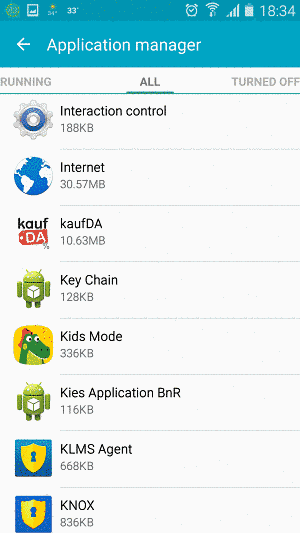
Locate the Browser/App in question and tap on it.
![]()
Now the method is effectively the same for users using both “Internet” and Chrome/Other Browsers, yet for more clarity we have provided instructions for both:
For “Internet” Browser Users:
Tap the Force Stop button.
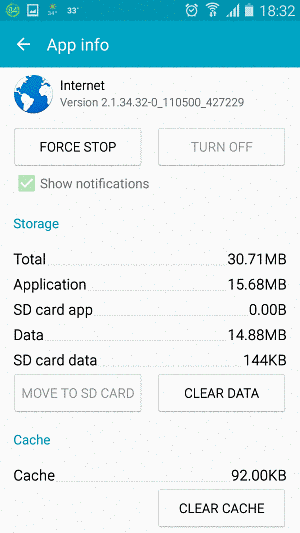
Now tap the Clear Data and Clear Cache Buttons.
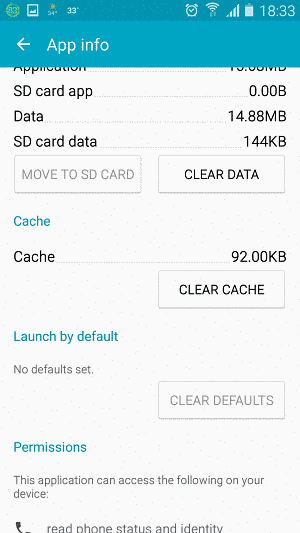
For Google Chrome Users:
Click on Force Stop.
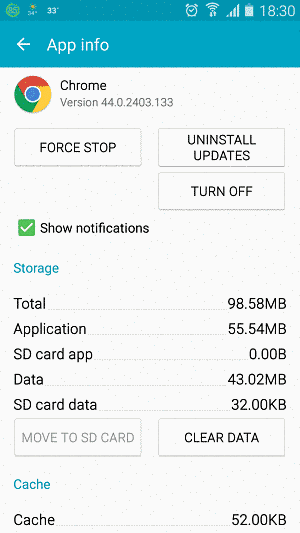
Then click on Clear Data and Clear Cache.
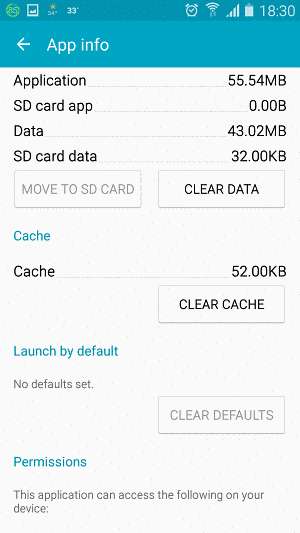
![]()
Restart your Browser. It might be a good idea to Reboot your Android device, just in case.
- Important!
If you are still seeing Ads in your browser, it is likely they are generated by the websites you visit and there is nothing you can do about it.
However, if you are seeing Adverts outside of your internet browser, then one of your installed Apps contains the problematic Adware. In this case you need to take a look at this guide.
Did we help you? Please, consider helping us by spreading the word!

Leave a Reply